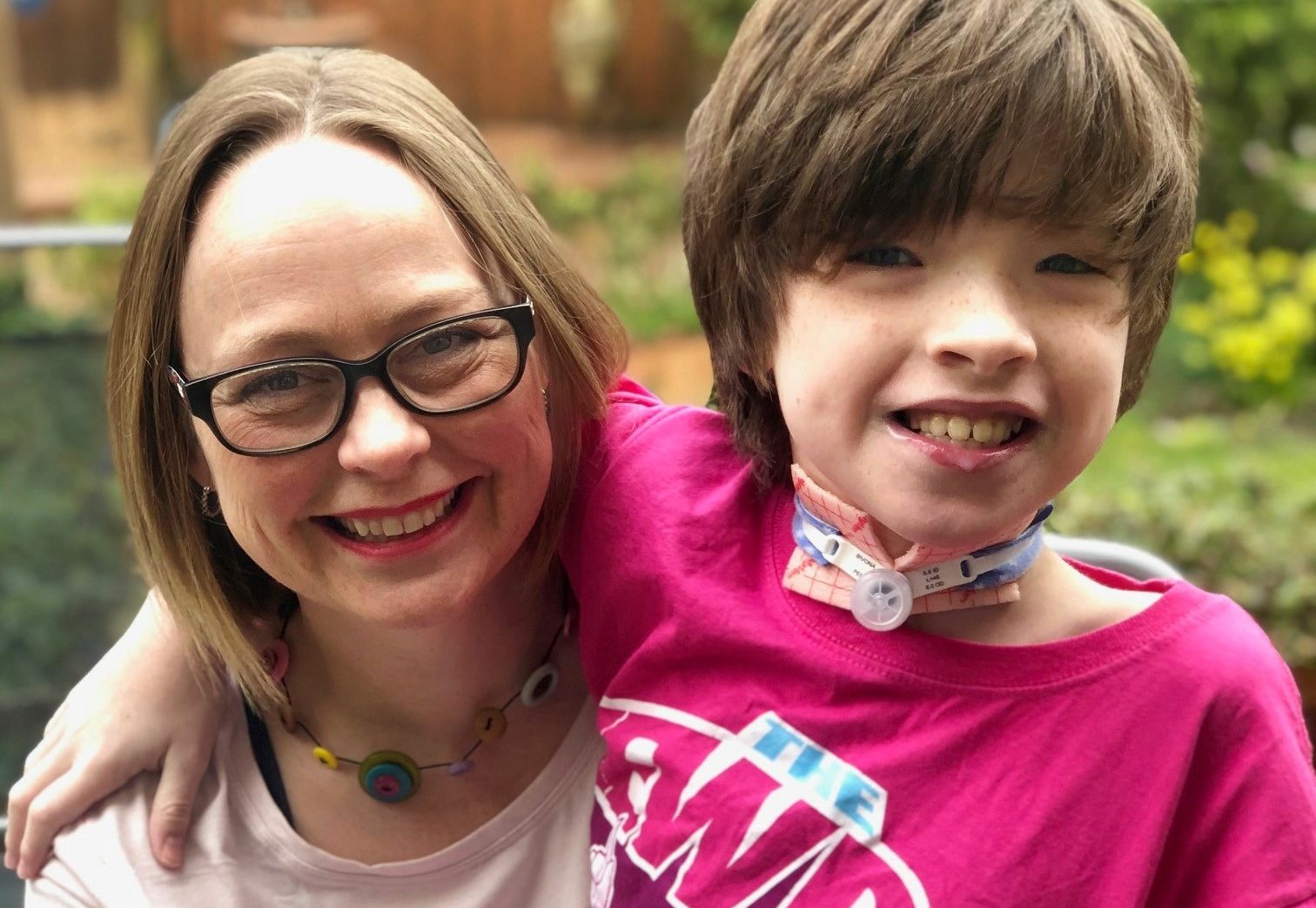WellChild calls for urgent ‘new deal’ for exhausted families with seriously ill children as care staff shortages take their toll.
Families of seriously ill children are increasingly being asked to fill the void left by complex care staff shortages and that is having a dangerous impact on an already tired and weary population of unpaid carers, whose children require round the clock medical supervision and complex care.
That’s the message national children’s charity, WellChild has heard from families and WellChild Nurses working across the UK.
More than 50 families from across the UK have shared their individual experiences of reduced care packages with the charity, with nearly 80% experiencing problems with their current care package since the outbreak of COVID-19 and 88% saying that there is an expectation from their care provider that they would cover ever more frequent staff shortages. Having had to step up during the height of the COVID-19 pandemic, many are being expected to continue to do so with no respite in sight.
The impacts of this reduction to care packages on families are enormous.
• 57% said the extra care responsibilities piled on to already stressed parents has had a negative impact on their mental health.
• 63% of the parents said it is having a negative impact on their physical health.
• 37% said that they felt the changes to their care package have had a negative impact on their ability to keep their child safe.
WellChild is urgently calling for a ‘new deal’ for parents and carers of children with complex care needs. In particular:
• Urgent action to address complex care workforce shortages, including a review into whether properly skilled overseas workers could help fill the gap to avert the immediate crisis.
• Provision and priority access to tailored mental health support for families, especially those having to cover care staff shortages.
• A review into the complex care workforce and implementation of a new national framework for care staff recruitment, pay, training and retention.
• Making it an enforceable legal requirement for care providers to have contingency plans to provide cover when necessary and support them with the funding and tools to achieve this.
• Active engagement with parents to explore different and more creative models of care provision.
• Support the Disabled Children’s Partnership call to close the £2.1bn funding gap for disabled children’s health and social care and for local councils to invest in the health and care services disabled children and families are entitled to as they set budgets by April 2022.
WellChild Director of Communications and Engagement Matt James said: “The families that WellChild support have had two years without the proper care and support they need to keep their children safe at home, instead of hospital. It is not acceptable or sustainable for already exhausted parents to continue to cover care staff shortages, which will often include consecutive day and night shifts. It is now a matter of urgency that action is taken on this immediate crisis before it’s too late.”
Among the comments made by families of seriously ill children on the issue of reduced care packages were the following:
“We’re covering more nights due to no cover. This makes us tired and impacts on our physical health”
“We are 85 hours into unmet care with a new agency”
“When the staff go off sick or where they have pulled out (for various reasons) we are left with nothing so if we don’t cover them who will?”
The impact the situation is having on families is illustrated by the following comments made by them:
“This whole situation has affected every aspect of our lives. I am physically and mentally drained. My son requires waking night care and we just can’t get it”
“I’m so angry and frustrated by it I could cry. I’m exhausted and struggling to function at work”

Jill’s story
Jill from Kirklees has a 10-year-old son, Noah, who has Interstitial Lung Disease, a tracheostomy and requires ventilation at night.
Jill’s care package is provided by a Care Agency and pre-Covid was at 107 hours per week with six carers covering the package. During lockdown Jill dramatically reduced this to avoid infection coming into the house and cancelled all day care and retained one night carer. She alternated the night shifts with them, meaning the care package dropped down to around 40 hours of care support per week. The decision to do this was made by the family to keep Noah safe. Jill felt confident with the one carer as they too were shielding with their family.
Following covid, whilst the care package should be the same, in reality she now only has cover for school day shifts and at most three nights a week. This averages out to around 67.5 hours of care support each week instead of the 107 she should have.
This is having a negative impact on Jill’s mental and physical health, her finances, her ability to keep Noah safe and her ability to spend time with her other children because she is expected to cover all the remaining shifts.
Jill says: “Sometimes I am having to do four or five nights in a row. Since 23rd December there has been virtually no night time cover. I’ve had to do a run of 35 nights with help on only two nights in that time. This was because of a lack of staff and the fact that when the carers that were on the roster became sick with covid there was no available cover.
Then my family caught covid and I couldn’t have anyone come into the house to help. I was having to wear full PPE to look after my vulnerable son and had to sit in the hallway at night to keep a safe distance from him, but also to be close enough to monitor his machines.
“I am exhausted. I am tired and could fall asleep at any moment. The amount of caffeine that I have to have sometimes makes me feel sick and shaky. I have no patience. This puts a huge strain on the whole family, both me, my partner and our other two children (we have three between us). I can’t be the mum that I want to be with our children because I am ‘working’ shifts. They see me worn out and stressed all the time with no extra time to spend with them.
I am exhausted. I am tired and could fall asleep at any moment.
“I find it hard to concentrate and I can tell at work that I’m making mistakes and it takes longer for me to make decisions. I worry that I’ll miss something with Noah’s care. I need more energy to do these nights which means I eat more. I have huge sugar cravings so I eat it and then shortly after I have a huge crash of energy so have to have more. I’ve put weight on. I feel bigger and unhealthy and I worry about what would happen if I collapsed because of exhaustion. There is no agency back up plan, so I’m just hoping things get better very soon although I know they won’t. There are no staff coming through and they would have to complete training when they do get here.
“I believe lack of staff recruitment is the main issue but also the general attitude of the agencies and the CCG that nothing can be done and that I’ll just do it. They don’t even say that there are shifts down they just presume that I’ll do them. No communication. Nothing. They just know that I will have to cover.
“I have considered taking a Personal Health Budget instead of relying on an agency but now I have no capacity for any more work and I don’t know if I’d be able to recruit any easier so I feel like I’m just stuck here doing their job always. If I can’t recruit or carers are off sick, as someone with a PHB, I would have no one to turn to for help when needed, it would all be on my shoulders to manage.”
It’s not that I don’t want to look after Noah it’s that I’m not physically able to do it 24/7.
“As well as his medical needs he has emotional needs too, which are very wearing. It would actually be easier mentally for me not to have to rely on the agency but I have to have help. I have had big meetings with group directors of care and the commissioner. There are always false promises of things picking up. There’s a lack of staff and a lack of money.”




